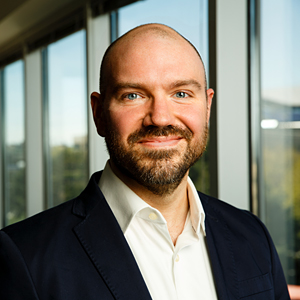
In the United States, an alarming 1-in-7 men will develop prostate cancer. Although gay men are not at higher risk for prostate cancer than heterosexual men, if they are in a relationship, both men may have the disease. And research shows gay men appear to suffer poorer outcomes from prostate cancer compared to heterosexual patients.
A key factor in how well all prostate cancer patients recover from the disease is their access to social support. Assistant Professor Benjamin Capistrant recently looked at the social support gay and bisexual prostate cancer patients have or need and discovered that it can differ greatly from heterosexual men.
Capistrant’s study was recently published in the journal Psycho-Oncology.
According to the study, when gay men only had access to standard, mainstream support services focusing on the sexual concerns and issues common to heterosexual men, those services failed to provide them with information they felt they needed for critical conversations.
In contrast, patients who were part of gay-specific groups not only felt they received improved emotional and informational support, but also that they gained valuable insight into the pros and cons of treatment options from people like themselves who have used them.
“Almost uniformly, they said that they wanted more resources specific to gay and bisexual men with prostate cancer, such as support groups and information,” says Capistrant. “The men who had access to those things relied heavily on them in order to have frank discussions with others about things like deciding which treatment to undergo and the significant sexual side-effects of cancer treatment.
“The implication is health care systems and providers can help gay prostate cancer patients by identifying or creating local and on-line resources for support groups and other services.”
In the case of gay men in relationships, the study showed that having a partner didn’t guarantee support and that in some cases partners were not involved in helping patients make treatment decisions.
“Clinicians should also be conscious that gay and bisexual men have a different social network through which they get support: Friends and family — other than a partner — may have roles and caregivers could be different compared to heterosexual men who are typically looked after by a wife or adult children,” Capistrant says.
Capistrant is now expanding on this line of research and focusing on the role partners play in the treatment of prostate cancer patients. He plans to use what he discovers to design interventions that increase or enhance partner support.

